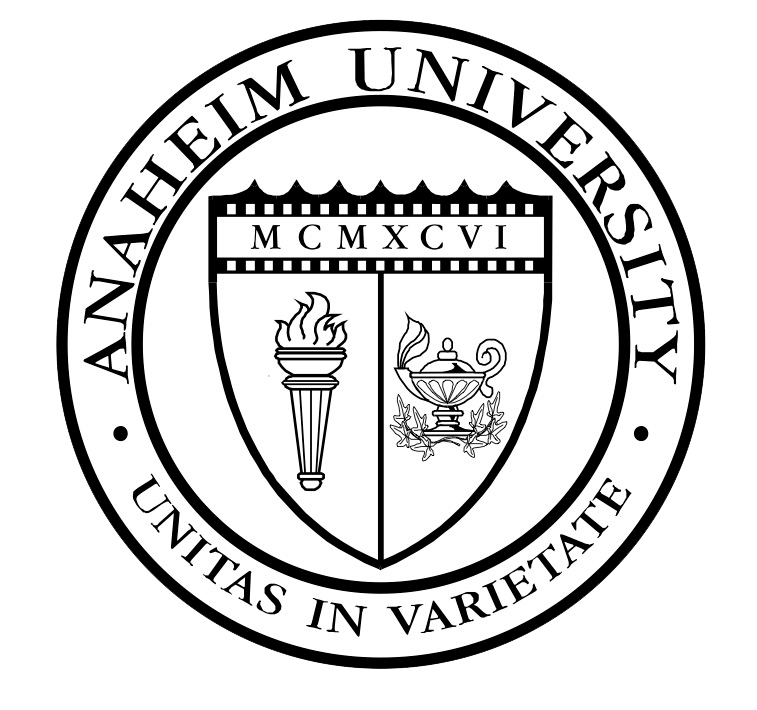Graduate Certificate in Sustainable Management
June 6, 2023 2025-01-27 1:59Graduate Certificate in Sustainable Management
Online Sustainable Management Certificate
The online Graduate Certificate in Sustainable Management provides an opportunity to acquire knowledge in the field of sustainable management from Anaheim University’s Kisho Kurokawa Green Institute. Students select 3 sustainable management courses from a choice of 4. Each course is 6 weeks long making it possible to finish the program in 18 weeks. The Certificate is offered 100% online.
- Study online from anywhere in the world
- Year-round enrollment: Begin your studies anytime
- Target your studies to three areas of your choice
- Complete the entire Certificate online in as little as 18 weeks
- Study under the direction of highly qualified faculty in an interactive environment
- Learn to be environmentally-minded and socially responsible in your business
- Network with business professionals around the world


Kwok Shum, Ph.D.
Associate Dean, Akio Morita School of Business
Director, Kisho Kurokawa Green Institute
Professor
After earning a Stanford University Master of Science in Engineering degree, Dr. Kwok Shum received his Ph.D. in Management of Technology from the Tokyo Institute of Technology. Dr. Shum’s research and teaching interests lie in new technologies, renewable energy industry and deployment, the
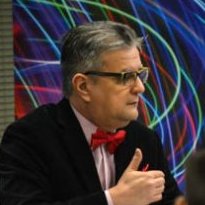
Carlos Aquino, Ph.D.
Professor
Holding a George Washington University MS in Structural Engineering and a University of Sao Paolo Ph.D. in Sciences and Technology, Dr. Carlos Tasso Eira De Aquino is an accomplished senior executive and educator combining over 25 years of experience in leadership and scholarship in Business, Education, IT, and Engineering. In his executive career, he has been strategically

Vince Carter, Ph.D.
Professor
Dr. E. Vince Carter is a Professor at the Anaheim University Akio Morita School of Business and Kisho Kurokawa Green Institute. Vince’s teaching approach develops learning blueprints to align structured Green Marketing skills with creative knowledge discovery. This dialectical dynamic embraces the spirit of Kisho Kurokawa’s design philosophy of symbiosis for The Age of Life. Dr. Carter

Robert Diotalevi, J.D.
Professor
Dr. Robert Diotalevi, Esq., LL.M., is serving in his 17th year as Associate Professor of Legal Studies at Florida Gulf Coast University in Fort Myers, Florida. He was the founding Legal Studies Program coordinator. He has been a lawyer for 33 years as a member of the Massachusetts and Florida bars. He possesses 4 degrees and has

Mariah Jeffery, Ph.D., CSCP
Professor
Dr. Mariah Jeffery holds a Ph.D. in Operations Research and a Master of Science in Industrial Engineering from the University of Central Florida, and is an APICS Certified Supply Chain Practitioner. She has extensive industry experience, consulting on supply chain management and data analytics for Fortune 500 clients, including IBM, Coca-Cola, General Motors, and the United States
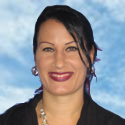
Tamara Myatt, Ph.D.
Professor
Holding a Ph.D. and Masters in Human and Organizational Systems from Fielding Graduate University, Tamara Myatt has spent more than a decade transforming the professional and educational lives of young and disadvantaged people in some of the poorest and most dangerous regions of the world, championing the causes of women, and orchestrating locally and globally scaled initiatives
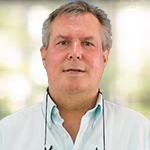
Chris Raymond, Ph.D.
Professor
Dr. Christopher Raymond earned a Ph.D. in economics from the University of California, Santa Barbara, and later completed an international MBA from École National des Ponts et Chaussées in Paris, France. After earning his MBA, Dr. Raymond became an economics lecturer in the Management School at Imperial College, London. While there, he also served as Deputy Director

Stavros Sindakis, Ph.D.
Professor
With both a Ph.D. and MBA in Strategy, Enterprise & Innovation from the University of Portsmouth, Dr. Stavros Sindakis has made significant contributions to these fields through his research and publications on entrepreneurship and business innovation including his books Entrepreneurial Rise in Southeast Asia, and Analytics, Innovation and Excellence-Driven Enterprise Sustainability, with his third in progress. Dr.
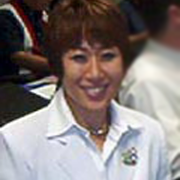
Barbara Son, Ph.D.
Professor
Holding a Ph.D. in Urban Business Economics from Portland State University, and a Masters in Urban Affairs with a concentration in Technology, Business, Economics, and Public Administration from Boston University, Dr. Barbara Son is well-experienced in the field of online education and has taught global management at Boeing in Long Beach, DBA at University of Sarasota/Argosy University,

John Wang, Ph.D.
Professor
Dr. John Wang received a scholarship award to complete his Ph.D. in Business Administration at Temple University in 1990, after earning his M.S. in Systems Engineering from Harbin Institute of Technology. In addition to serving as a professor in the Anaheim University Akio Morita School of Business, Dr. John Wang is a professor in the Department of
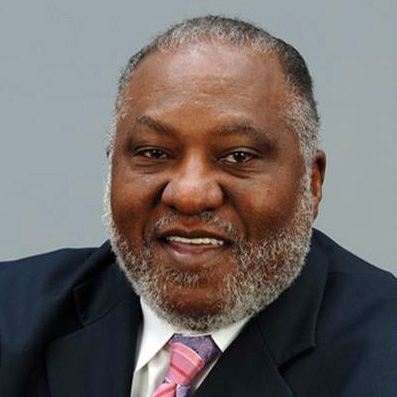
Andrew E. Honeycutt, DBA
President, Anaheim University
Professor
Dr. Andrew E. Honeycutt, President of Anaheim University, is the recipient of a Harvard University Doctor of Business Administration (DBA) degree in Marketing and a Boston University Master of Business Administration (MBA) degree in Organizational Behavior. Dr. Honeycutt has served as Dean of the School of Business and Management and Director of the
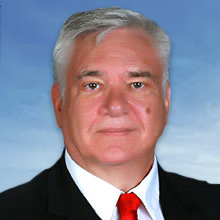
Robert Robertson, Ph.D.
Dean, Akio Morita School of Business
Dr. Robert Robertson holds a Ph.D. in Management and Organization (Stirling University, Scotland); Massachusetts Institute of Technology (MIT) Sloan School of Management Executive Certificate in Innovation and Strategy, Post-Doctoral Professional Certificate, International Business and Leadership (Argosy University); Post Graduate Diploma in International Management-China (University of London); Master of Studies in Law (Vermont
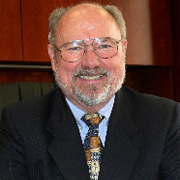
William Hartley Ph.D.
President Emeritus
Professor
Dr. Hartley’s background is a combination of education, private sector work, teaching and consulting. Holding a bachelor’s degree, three master’s degrees, and a Ph.D. from the University of Colorado, University of California at Berkeley and University of Wisconsin respectively, Dr. Hartley has had a variety of jobs from administrative manager of the R&D division
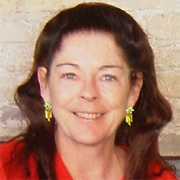
Caryn Callahan, Ph.D.
Senior Professor Emeritus
Holding a Harvard University Ph.D. in East Asian Languages in Civilizations with a specialization in Japan and an MBA specializing in Finance-Accounting from the University of California Los Angeles (UCLA), Dr. Caryn Callahan is a former Vice President and International Equity Analyst for Merrill Lynch Japan as well as Financial Analyst for W.R. Grace
Overview
In the Anaheim University Kisho Kurokawa Green Institute Online Graduate Certificate in Sustainable Management program, you will learn the foundations of sustainable management from expert professors while networking and collaborating with classmates around the globe.
About the Online Certificate in Sustainable Management
- Each term is 6 weeks in length, and you may enroll in new courses every 6 weeks.
- Specialize in your area of interest by choosing 3 of 4 sustainable management courses
CHOOSE 3 SUSTAINABILITY COURSES:
- Triple Bottom Line Accountability & Mgmt
- Green Marketing & Environmental Product Design/Recycling
- Corporate Social Responsibility & Ethics
- Sustainable Enterprise Development & Leadership
How the Program Works:
Course Schedule & Evaluation Structure
Online Discussion Forum
Team Project
Week 1
Week 2
Live Webinar
Week 3
Week 4
Week 5
Live Webinar
Week 6
Final Project
- During each 6-week term you will be evaluated on your participation in the daily online discussion forum, two 90 minute live online webcam seminars, an Internet Research Assignment, a team project, and a final individual project. Four courses will also include a proctored exam.
- Through the Online Discussion Forum, discuss questions regarding your readings with your professor and fellow students around the world
- At the end of the 2nd and 5th weeks, join the two 90-minute live online webcam seminars
- Develop valuable teamwork skills through a collaborative team project
- Discussion questions and assignments can be tailored to your personal project or work situation
- What you learn today can be used in your job tomorrow
Objectives
- Discuss significant research findings in selected fields of sustainability;
- Use analytical tools for decision making in a complex business world of issues and problems pertaining to targeted areas of sustainability;
- Identify skills and practices necessary to help move organizations into a decision-making framework necessary to deal with organizations impact on a variety of ecosystems;
- Demonstrate effective oral and written communication, presentation, and critical thinking skills necessary to help convey the importance of sustainability to various stakeholders;
- Use applied quantitative and/or behavioral tools of business analysis and decision-making to help to understand part or all of an organization s impact on a variety of ecosystems;
- Describe various considerations in decision-making within the business world as they pertain to the necessity of developing sustainable operations.
Curriculum
Certificate in Sustainable Management
Anaheim University’s Online Certificate in Sustainable Management is comprised of 3 courses (6 weeks each). Students have the option of enrolling in one course or the entire Certificate program. Students completing the three courses will be conferred the Certificate in Sustainable Management by Anaheim University.
Students select three of the following four courses:
BUS 535 Triple Bottom Line Accountability & Management
The Triple Bottom Line Accountability and Management course is an expanded version of accounting for corporate activity. Contemporary society has moved away from the mere financial bottom line to a higher level of social responsibility where we account for the true social impact of our business activity. Through this expanded version of accounting and accountability, social and environmental impact is added to the equations. Thereby the report of corporate activity and management comprehensively reflects a true bottom line. The three prongs of the true bottom line become clear: economic prosperity, environmental quality and social justice. This course provides the basis for business students to go forward and determine the true social effects of the businesses they are working for and to manage for the future.
BUS 545 Green Marketing & Environmental Product Design / Recycling
Green Marketing & Environmental Product Design/Recycling is a course structured around the traditional “4Ps” of marketing and explains how marketing mix decisions can and do influence environmental outcomes. Throughout the course, the emphasis will be on the conversion of consumption systems to a sustainable paradigm that represents a circular use of resources, not the linear approach (materials >products >consumption >disposal) that leads to the pollution of ecosystems. The major theme of the course is that marketers can reinvent strategy and craft “ win-win” solutions, where customers win (obtaining genuine benefits), organizations win (achieving financial objectives), and ecosystems win (ecosystem functioning is preserved or enhanced).
BUS 555 Corporate Social Responsibility (CSR) & Ethics
Corporate Social Responsibility and Ethics is a comprehensive study of the core issues for business in the questions of sustainability, social responsibility and ethics. The course introduces the student, not only to relevant issues, but the views of corporate stakeholders. Approaches for presenting and carrying out a program of sustainability are presented, including strategic planning,targets, goals and alternative approaches. A principal part of the course is devoted to the ethics of business and issues of transparency, including discussion of the social impact of non ethical and non transparent business practices. Case studies, a team project and practice assignments assist in presenting these themes on a practical level. The course concludes with information and discussion on trends in sustainability and business ethics. A principal goal of the course is to show that community engagement and the maximization of profit/ shareholder value are not mutually exclusive, but mutually reinforcing.
BUS 565 Sustainable Enterprise Development & Leadership
Sustainable Enterprise Development and Leadership is a course which provides a comprehensive and practical analysis of what sustainable business development is and how companies can use it to make a significant difference. Sustainable development involves articulating, integrating and achieving social, economic, and environmental objectives, and initiatives to protect humankind and the natural world from destructive behaviors. Sustainable business development is a holistic management approach which includes the entire value added system from the origins of raw materials ,to production processes, to customer use, to product end of useful life. Sustainable outcomes are those that balance the performance objectives of the present with the needs and expectations of the future. To achieve these outcomes, there must be a profound change in strategic thinking, leadership and the management of businesses.
Schedule
Graduate Certificate in Sustainable Management Course Schedule 2025
Live online webcam seminars are 120 minutes; the first hour is led by an expert speaker and the final hour is for professor-led discussion. All times are California/Pacific Time. Please note the schedule is subject to change. Graduate Certificate students choose any 3 out of the 4 Sustainable Management courses.Term | Term Dates | Courses Offered | Live Online Webcam Seminar Dates |
1 | January 2, 2025 – | BUS 575 Supply Chain Management | TBA |
2 | February 10, 2025 – | BUS 615 Capstone | TBA |
3 | March 24, 2025 – | BUS 510 International Economics | TBA |
4 | May 5, 2025 – | BUS 520 International Human Resource Management | TBA |
5 | June 16 – | BUS 530 International Accounting | TBA |
6 | Aug 4 – | BUS 540 International Marketing | TBA |
7 | September 15 – | BUS 550 International Management | TBA |
8 | October 27 – | BUS 560 International Finance | TBA |
All online class times are California/Pacific Time. Please note that California observes Daylight Savings Time each year from the second Sunday in March to the first Sunday in November.
Tuition & Fees
Graduate Certificate in Sustainable Management Program Fees
Affordable Pay-As-You-Learn System: Pay for only one course at a time.
Application Fee | $ 75 |
Registration Fee | $100 |
STRF Fee* (non-refundable, CA residents only) | $0 |
Per Course Fees | $1,125/course taken |
Records Fee | $ 200 / term |
Per Course Fee Total: | $1,325 |
Additional Fees | $ 200 |
Transfer Credit Fee | $ 75 / course |
Original Transcript | No Cost |
Each Additional Transcript Copy | $ 25 |
End of Program Fees | $ 100 (Optional) |
Replacement Cover | $ 100 (Optional) |
Course Completion Letter | $ 35 (optional) |
Certificate Program Total | $4,350* |
Note: A student can plan on approximately $200 in textbook purchases during the program. A textbook list may be found in the online resources of the student website. Real-time classes do not require specific materials beyond what is already supplied for the course.
The above itemizes all of the fees and charges for which the student is responsible. The refund policy may be found in the Policies & Procedures section.
*Student Tuition Recovery Fund (STRF): The Student Tuition Recovery Fund (STRF) is administered by the California BPPE and applies only to California residents. The STRF fee is currently zero ($0) per one thousand dollars ($1,000) of institutional charges The State of California established the Student Tuition Recovery Fund (STRF) to relieve or mitigate economic loss suffered by a student in an educational program at a qualifying institution, who is or was a California resident while enrolled or was enrolled in a residency program, if the student enrolled in the institution, prepaid tuition, and suffered an economic loss. Unless relieved of the obligation to do so, you must pay the state-imposed assessment for the STRF, or it must be paid on your behalf, if you are a student in an educational program, who is a California resident, or are enrolled in a residency program, and prepay all or part of your tuition. You are not eligible for protection from the STRF and you are not required to pay the STRF assessment, if you are not a California resident, or are not enrolled in a residency program.
Each course is US $1,125 for tuition excluding books, materials, and other costs listed above. Students must pay the required tuition fee prior to commencing their next course. The student is not required to pay this tuition fee until the student wishes to register for his or her next course.
Tuition may be paid on a course-by-course basis.
Students interested in inquiring about non-interest-bearing monthly payment plan options should e-mail registrar @ anaheim.edu
Students may make payment by check, credit card (Visa, MasterCard, American Express, or Discover), money order, or bank transfer (the student is responsible for any transaction fees imposed by the institution).
Please e-mail registrar @ anaheim.edu for information on how to make payments.
An application for a Sustainable Management Certificate must include the following:
- Application form
- Application fee ($75)
- One recent color photograph (digital is okay)
- A scan of a current, government-issued photo ID
- Current resume
Official undergraduate transcripts from an accredited institution recognized by the US Department of Education and/or CHEA, or by the government of the country in which the degree was awarded, in a sealed envelope from the awarding institution with an overall GPA of no less than 3.0 on a 4.0 scale, or equivalent from non-USA Institutions.
Note: If the university does not routinely issue transcripts in English, original language records must be submitted with official English translations. We will accept translations issued by the university or by the following professional translation services: Accredited Language Services; Berlitz; Liaison Linguistics; Josef Silny & Associates; American Evaluation & Translation Services (AETS); and Education Evaluators International. Translations must be exact and complete versions of the original records.
Non-native English speakers must demonstrate college-level proficiency by providing original documentation in one of the following ways:
- Degree from an accredited institution where English is the primary language of instruction.
- Transcript from an accredited institution indicating completion of at least 30 semester hours of credit where the language of instruction was English (“B” average)
- Transcript from an accredited institution indicating a “B” or higher in an English composition class.
- A minimum TOEFL score of 530 PBT / 197 CBT/ 71 iBT.
- A minimum TOEIC score of 800.
- A minimum IELTS score of 6.5.
- A minimum PTE (Pearson Test of English Academic Score Report) of 50.
- A minimum BULATS Level 3 (60), accepted only for Cultura Inglesa in Brazil.
- A minimum grade of Level 3 on the ACT COMPASS’s English as a Second Language Placement Test.
- A minimum grade of Pre-1 on the Eiken English Proficiency Exam.
- A minimum B2 English proficiency level identified within the Common European Framework of Reference (CEFR) Standards and assessed through various ESOL examinations, including the University of Cambridge.
Once your application materials have been approved, you will need to submit an Enrollment Agreement and tuition payment to complete the enrollment process.
Internet Access: All students are required to have access to a computer equipped with Internet access capabilities.
Entrance Examination: There is no entrance examination required for admission to Anaheim University.
Transfer Credits: Anaheim University will accept up to two graduate semester classes or 6 units awarded by another institution toward a Master’s in Entrepreneurship; International MBA, Diploma or Certificate; and Sustainable Management MBA, Diploma or Certificate at Anaheim University. The entering student will be required to clearly demonstrate the equivalency of a transfer course through relevant documents (syllabus, catalog, course outline) and justify its acceptance through petition. No course will be considered for transfer with a grade lower than a “B” or its equivalent. Petitions are directed to the specific Dean for the affected program. There is a fee of $75 per course of credit transferred, and the overall program cost will be adjusted to reflect credit for the approved class(es). All petitions for transfer credit must be submitted as part of the student’s initial application to the University. Credits awarded as part of another degree will not be accepted for transfer.
Prior Experiential Credit: Anaheim University will not extend experiential credit to any student.
We currently do not accept students who reside in Alabama, Arkansas, Alaska, American Samoa, Connecticut, Delaware, District of Columbia, Georgia, Guam, Indiana, Maryland, Massachusetts, Michigan, Minnesota, Montana, New Jersey, New Mexico, New York, North Carolina, North Dakota, N. Mariana Islands, Oklahoma, Oregon, Pennsylvania, Puerto Rico, Rhode Island, Utah, Virginia, Virgin Islands, Wisconsin, and Wyoming due to regulatory matters. For more information, please call our Vice President of Administrative Affairs at 714-772-3330
.
The steps below are general guidelines for joining a program at Anaheim University. Just complete the following steps and, if approved, become part of Anaheim University’s global community within 2 weeks.
Step 1:
Read thoroughly through the pages of our website and catalog
Step 2:
- Click here to submit your application online
- Click here to fill out a pdf version of the application and submit via email.
Step 3:
The following documents are required for admission:
- Application form
- One recent passport-size color photograph
- Official English language proficiency test score report if you are a non-native English speaker (mail original*)
- Official transcripts.† (mail original*)
- Official transcripts documenting at least one course in each of the following: accounting, finance and economics.†††† (mail original*)
documenting a minimum of 5 years of work or teaching experience in a relevant area of business†††† - Resume ††
- Brief Statement.††
- Resume documenting a minimum of 4 years experience in some aspect of TESOL (teaching, teacher education or publishing).+++
- An outline (1,000 words) of the possible research that the applicant envisions undertaking for the dissertation that demonstrates his/her research experience and abilities. +++
- Three reference letters (on letterhead with contact information) attesting to personal and professional qualifications. One reference must be from each of the following:+++
– A recent employer.
– A TESOL professional who can attest to the applicant’s potential as a doctoral student.
– A member of the academic faculty where the applicant completed his/her MA.
†††† DBA Only
††† Ed.D TESOL Only
†† MA TESOL or MFA Only
† Not applicable to TESOL/TEYL Certificate Programs
*scanned copies are accepted to expedite application process while waiting for originals to arrive in the mail
Documents can be uploaded as part of the online application form, emailed to support@anaheim.edu or posted in the mail to the address in Step 5.
Step 4:
This fee may be paid by emailing the Credit Card Form to registrar@anaheim.edu
posting a check or money order in the mail to the address in Step 5
contacting registrar@anaheim.edu for information on how to send a bank wire transfer
Step 5:
Send all required application documents you do not submit online by registered mail to the Office of Admissions at:
Anaheim University
Office of Admissions Room 110
1240 S. State College Blvd.
Anaheim, CA 92806-5150
USA
Step 6:
Upon receipt of application materials, a receipt for the application fee will be sent to you. In case your application materials are incomplete, please follow the directions issued by AU. When the Dean has approved acceptance of a student, an acceptance message and enrollment agreement form will be sent to the student.
Important Notes:
Official TOEFL or TOEIC score document-Non-native English speakers must demonstrate college-level proficiency in one of the following ways:
- Degree from an accredited institution where English is the primary language of instruction.
- Degree from an accredited institution where English is the primary language of instruction.
- Transcript from an accredited institution indicating completion of at least 30 semester hours of credit where the language of instruction was English (“B” average for graduate level programs, “C” average for undergraduate/non-credit programs).
- Transcript from an accredited institution indicating a “B” or higher in an English composition class (Ed.D, Masters, Graduate Programs & Graduate Certificates); “C” or higher for TESOL Certificate, Teaching English to Young Learners Program or TESOL Undergraduate Diploma
- A minimum TOEFL score of 500 PBT / 173 CBT/ 61 iBT (undergraduate/non-credit programs) or a minimum TOEFL score of 530 PBT / 197 CBT/ 71 iBT (graduate-level programs) or a minimum TOEFL score of 550 PBT/ 213 CBT/ 80 iBT (doctoral-level program).
- A minimum TOEIC score of 625 (undergraduate/non-credit programs) or a minimum TOEIC score of 800 (graduate-level and doctoral level programs).
- A minimum IELTS score of 6.0 (undergraduate/non-credit programs) or a minimum IELTS score of 6.5 (graduate-level programs).
- A minimum PTE (Pearson Test of English Academic Score Report) of 44 (undergraduate/non-credit programs) or a minimum PTE of 50 (master’s-level programs) or a minimum PTE of 58 (doctoral-level program).
- A minimum BULATS Level 3 (60), accepted only for Cultura Inglesa in Brazil.
- A minimum grade of Level 3 on the ACT COMPASS’s English as a Second Language Placement Test.
- A minimum grade of Pre-1 on the Eiken English Proficiency Exam.
- A minimum B1 English proficiency level identified within the Common European Framework of Reference (CEFR) Standards and assessed through various ESOL examinations, including the University of Cambridge.
- A minimum Duolingo English Test score of 95 (undergraduate/non-credit programs) or a minimum of 100 (master’s level programs), or a minimum of 105 (doctoral level programs).
- A minimum 4-skill Michigan English Test (MET) score of 53 (undergraduate/non-credit programs) or a minimum of 55 (graduate level programs).
- A minimum Michigan Examination for the Certificate of Competency in English (ECCE) score of 650/LP (all programs).
- A minimum Michigan Examination for the Certificate of Proficiency in English (ECPE) score of 650/LP (all programs).
- A minimum score on the College Board Accuplacer ESL Exam Series as follows: ESL Language Use (85); ESL Listening (80); ESL Reading (85); ESL Sentence Meaning (90); ESL Writeplacer (4); or a Comprehensive Score for All Exams (350).
Official Transcripts
Request that each college or university which you have attended send a transcript of your record in a sealed envelope. The courses you have taken, grades received, and, if applicable, the date and title of the degree conferred must be listed on each transcript. Each transcript must have the official seal or imprint of the institution as well. (Note: If the university does not routinely issue transcripts in English, original language records must be submitted with official English translations. We will accept translations issued by the university or by the following professional translation services: Accredited Language Services; Berlitz; Liaison Linguistics; Josef Silny & Associates; American Evaluation & Translation Services (AETS); and Education Evaluators International. Translations must be exact and complete versions of the original records.)
Ed.D in TESOL Program applicants must have official MA transcripts, in a sealed envelope from the awarding institution. Applicants to the Ed.D program must hold an earned MA degree from an accredited institution in TESOL, Applied Linguistics, or a relevant area of education, with an overall GPA of 3.0 on a 4.0 scale (or equivalent from non-USA institutions).
The DBA program requires a Masters degree in business administration, in a functional area of business, non-profit management, public administration, a JD degree, or other degree relating to managerial functions from an accredited institution recognized by the US Department of Education and/or CHEA, or by the government of the country in which the degree was awarded, and with an overall GPA of no less than 3.0 on a 4.0 scale, or equivalent from non-USA Institutions.
Licenses or Certificates
Please include photocopies of any licenses or certificates you hold which relate to the degree program to which you are applying. Do not submit originals as these materials will not be returned.
Resume
Please submit an up-to-date summary of your academic and professional accomplishments. An Ed.D. applicant must present a resume documenting a minimum of 4 years experience in some aspect of TESOL (teaching, teacher education or publishing.) A DBA applicant must present a resume documenting a minimum of 5 years of work or teaching experience in a relevant area of business
Brief Statement
For MA in TESOL and MFA program applicants, please write a brief (300 – 400 word) statement setting out why you have selected the Anaheim University program, what you hope to get out of it, and how it will help you in your present and future career.
Upon receipt of application materials, a receipt for your application fee payment will be sent to you. In the case that your application materials are incomplete, please follow the directions issued by AU. When the Dean has approved acceptance of a student, an acceptance message and enrollment agreement form will be sent to the student.

